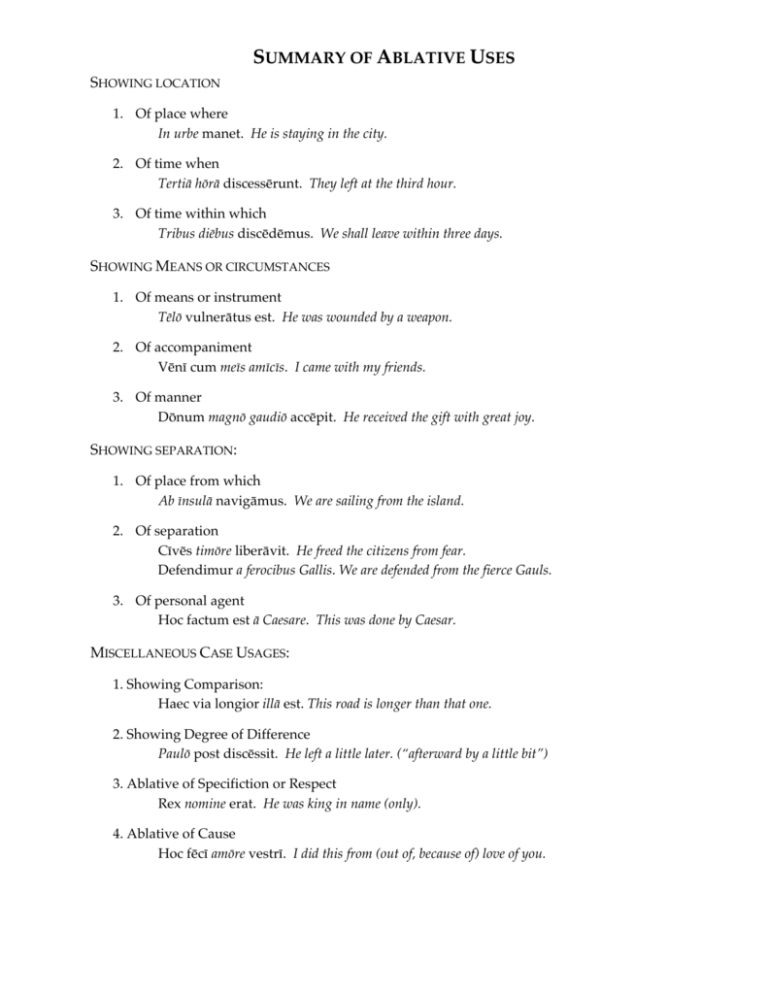Ablative Uses - The Latin Library
advertisement

SUMMARY OF ABLATIVE USES SHOWING LOCATION 1. Of place where In urbe manet. He is staying in the city. 2. Of time when Tertiä hörä discessërunt. They left at the third hour. 3. Of time within which Tribus diëbus discëdëmus. We shall leave within three days. SHOWING MEANS OR CIRCUMSTANCES 1. Of means or instrument Tëlö vulnerätus est. He was wounded by a weapon. 2. Of accompaniment Vënï cum meïs amïcïs. I came with my friends. 3. Of manner Dönum magnö gaudiö accëpit. He received the gift with great joy. SHOWING SEPARATION: 1. Of place from which Ab ïnsulä navigämus. We are sailing from the island. 2. Of separation Cïvës timöre liberävit. He freed the citizens from fear. Defendimur a ferocibus Gallis. We are defended from the fierce Gauls. 3. Of personal agent Hoc factum est ä Caesare. This was done by Caesar. MISCELLANEOUS CASE USAGES: 1. Showing Comparison: Haec via longior illä est. This road is longer than that one. 2. Showing Degree of Difference Paulö post discëssit. He left a little later. (“afterward by a little bit”) 3. Ablative of Specifiction or Respect Rex nomine erat. He was king in name (only). 4. Ablative of Cause Hoc fëcï amöre vestrï. I did this from (out of, because of) love of you.
